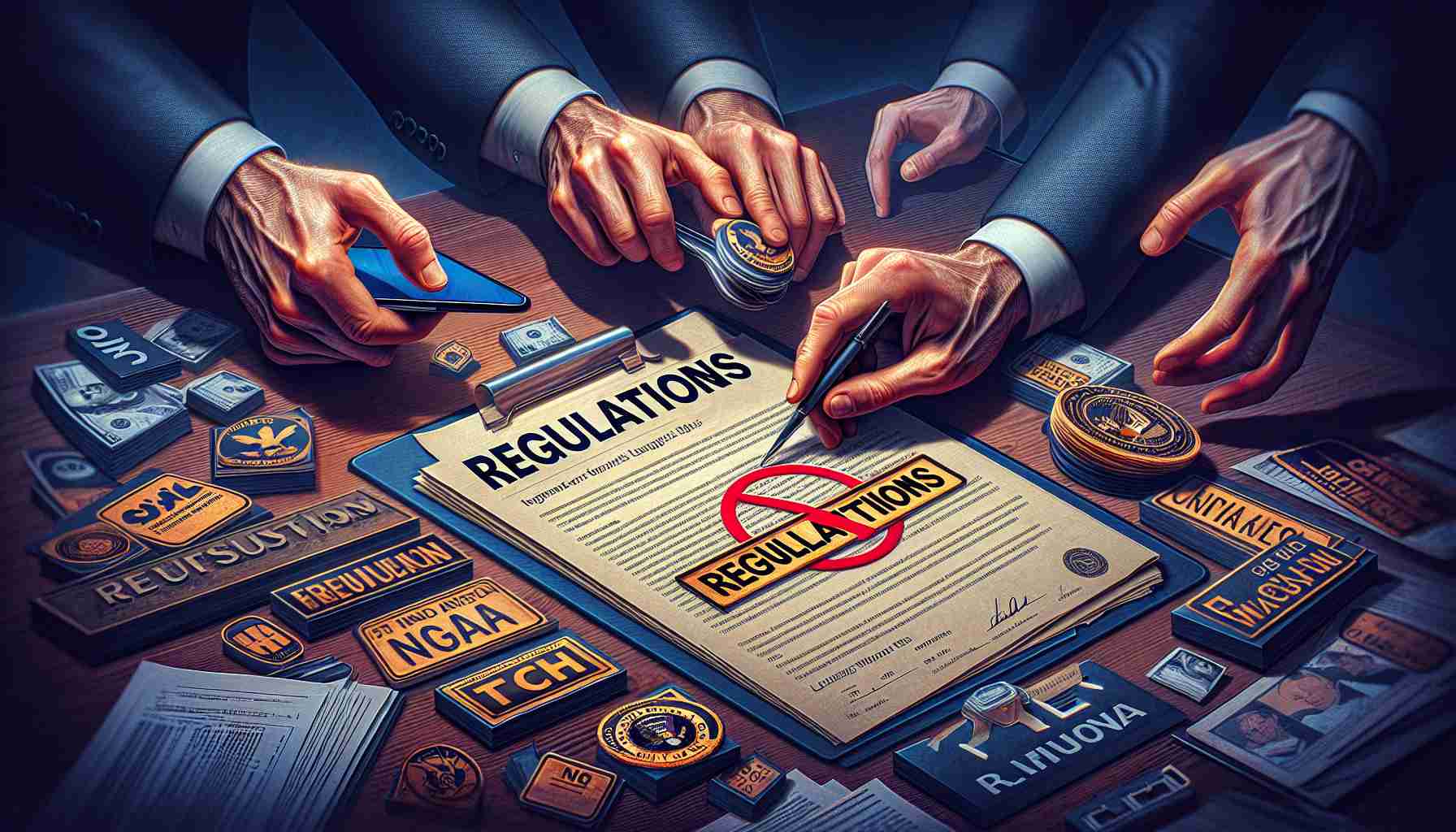The United States has escalated its regulatory measures against Chinese tech giant Huawei by withdrawing specific licenses that were essential for the sale of semiconductor chips to the company. This action reflects the latest endeavor by the US to limit China’s growing influence in the tech industry.
In light of the ever-evolving threats to digital security, American officials have deemed it necessary to reassess strategies to protect national security. The precise licenses revoked have not been disclosed, but the move adheres to America’s rigorous approach to monitoring technology exports.
Despite previous American restrictions, Huawei has displayed a remarkable capacity for adaptation. With the debut of the Mate 60 Pro smartphone, Huawei’s perseverance is evident; the device features chips from SMIC, China’s leading semiconductor manufacturer. This development demonstrates Huawei’s capability to navigate through stringent international rules.
Huawei’s tenacity is further exemplified by its recent performance in the Chinese market. In mainland China, Huawei witnessed an impressive 70% increase in smartphone shipments during the first quarter of 2024, claiming a 17% market share. This rise was significant enough to rival other prominent brands, such as OPPO, HONOR, vivo, and even Apple, all vying closely within the 15-16% range. The competition underscores the vibrant and competitive nature of China’s digital market landscape.
The revocation of sales licenses to Huawei is part of broader geopolitical complexities, including President Biden’s initiative that may lead to a US ban on TikTok unless its Chinese owners divest. These developing policies highlight the intricate and sometimes delayed dance between economic forces and national security efforts, with both the US and China having time to formulate responses to each other’s moves.
Important Questions and Answers:
– What are the implications of the US withdrawing licenses from Huawei?
The withdrawal of licenses could significantly affect Huawei’s access to advanced semiconductor technology, thereby impeding its ability to produce high-end electronics. It may also signal other countries to adopt similar measures, potentially isolating Huawei further on the international stage.
– Why is the US government targeting Huawei with these tech regulations?
The US government has expressed concerns that Huawei could share sensitive information with the Chinese government, posing risks to national security. The US believes the Chinese government could use Huawei’s equipment for espionage or cyber attacks. Thus, the regulations aim to protect national security and prevent potential abuse of technology.
– How has Huawei adapted to previous US restrictions?
Huawei has sought to become more self-reliant by sourcing chips from Chinese semiconductor company SMIC and by developing its own technologies, which has allowed it to continue operations despite the restrictions.
Key Challenges or Controversies:
One of the key challenges is the impact on global supply chains, as tech companies often have intertwined networks of suppliers and customers. The decision to revoke Huawei’s licenses could disrupt the operation of other companies, leading to economic consequences beyond the targeted firm.
The controversy lies in the balancing act between maintaining national security and fostering open, competitive markets. Some critics argue that the US’s strict regulations against Huawei are protectionist measures that unfairly target a non-American company.
Advantages and Disadvantages:
– Advantages:
– The move could strengthen the digital security of the US by reducing the potential risks associated with the use of foreign technology in critical infrastructure.
– It pushes American and other non-Chinese companies to innovate and fill the market gap left by Huawei.
– Disadvantages:
– Straining US-China relations, potentially leading to a tech cold war or retaliatory actions from China.
– Limiting market competition, which could result in higher costs for consumers and potentially slower technological progress.
To learn more about US regulations and policies around technology, readers can refer to the official sites of relevant US departments such as the U.S. Department of Commerce or security agencies like Department of Homeland Security. It is important to access such information directly from official and reliable sources.
